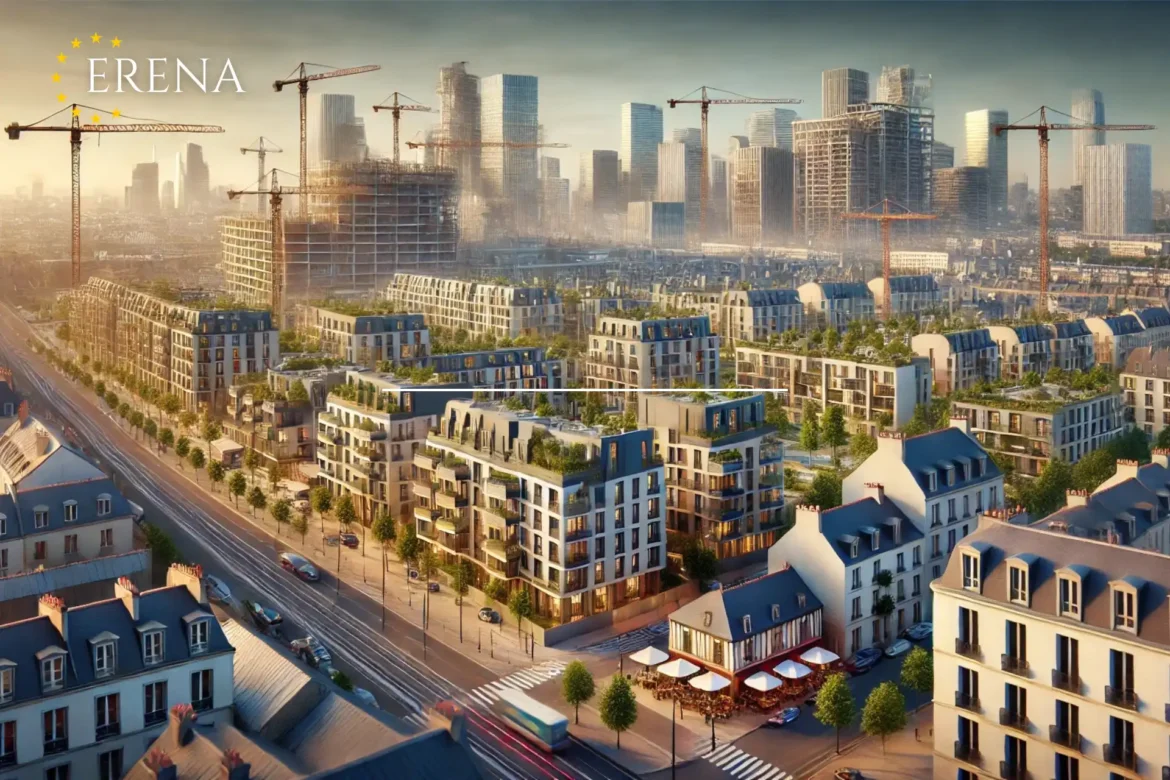Lyon, the second-largest city in France, is experiencing rapid growth, becoming a key hub for business, tourism, and new residents. Thanks to its strategic location, economic vitality, and rich cultural heritage, Lyon has demonstrated one of the highest growth rates in the country. However, behind this success lie both opportunities and challenges that demand careful management. This article explores the main reasons for Lyon’s growth, the associated challenges, and its future prospects.
Reasons for Rapid Growth
1. Lyon’s Economic Dynamism
Lyon is recognized as one of France’s most significant economic centers. Its economy is built on several key sectors, including biotechnology, pharmaceuticals, digital economy, and logistics:
• Biotechnology and Pharmaceuticals: Lyon holds a leading position in Europe, hosting major companies such as Sanofi and bioMérieux. Research centers and universities in the city contribute to advancements in science and medicine.
• Technology and Startups: Lyon is becoming a hub of innovation in the digital economy. The city actively supports startups, operates tech parks, and hosts international conferences.
• Logistics and Manufacturing: Located at the crossroads of Europe’s major transport routes, Lyon serves as a vital logistics hub.
These sectors create jobs, attract young professionals, and strengthen the city’s economic foundation.
2. Tourism and Cultural Heritage
Lyon is a city where history and modernity coexist harmoniously. Its Old Town, a UNESCO World Heritage Site, draws millions of tourists each year. Key attractions include:
• Narrow streets and Renaissance architecture in Vieux Lyon.
• The Basilica of Notre-Dame de Fourvière, offering panoramic views of the city.
• Traditional “bouchon” restaurants, where visitors can savor culinary delights.
Cultural festivals, such as the Lumière Film Festival and the Festival of Lights, further enhance tourism and establish Lyon as a globally recognized cultural center.
3. Infrastructure and Strategic Location
Lyon is strategically located at the intersection of transport arteries connecting Northern and Southern Europe, making it ideal for business and tourism. Key infrastructure highlights include:
• Lyon-Saint-Exupéry International Airport, offering connections to dozens of countries.
• High-speed trains (TGV): Lyon is only two hours from Paris and less than three hours from Marseille.
• Modern public transportation: A well-developed network of metro lines, trams, and buses ensures convenient mobility.
These factors attract both companies and residents seeking comfortable living conditions.
4. High Quality of Life
Lyon provides its residents with a comfortable and safe environment. Prestigious educational institutions, such as the University of Lyon and EM Lyon Business School, are located here. The city boasts an advanced healthcare system, numerous parks, and green spaces, along with a vibrant cultural calendar, making it attractive to families and professionals.
Challenges of Rapid Growth
1. Infrastructure Overload
The rapid population growth is putting significant pressure on Lyon’s infrastructure. Public transportation often operates at capacity, and traffic congestion has become a common issue. Schools, kindergartens, and healthcare facilities are struggling to keep up with the increasing demand.
2. Rising Housing Costs
The high demand for housing in Lyon has outpaced supply, leading to rising property and rental prices. This creates challenges for young professionals and low-income families, who are often forced to seek housing in suburban areas.
3. Environmental Challenges
The city’s rapid development is accompanied by increased air, water, and soil pollution. The growth of vehicle traffic and the reduction of green spaces exacerbate environmental issues. Additionally, waste volumes are rising, necessitating the adoption of modern waste management systems.
4. Social Inequality
Economic development in Lyon does not affect all districts equally. While some areas thrive, others face poverty and lack investment. This can lead to social tensions and widen the gap between different social groups.
Future Prospects
1. Smart City Technologies
Lyon is actively working on implementing smart city technologies, which include:
• Intelligent transportation systems to reduce traffic congestion.
• Smart meters for efficient resource use.
• Platforms for citizen engagement with municipal services.
These measures will help optimize city management and make it more convenient for residents.
2. Environmental Sustainability
City authorities are investing in projects to improve Lyon’s environmental situation:
• Creating new parks and expanding green spaces.
• Transitioning to renewable energy sources.
• Developing bicycle infrastructure and enhancing public transportation.
Such initiatives will reduce pollution levels and improve the quality of life in Lyon.
3. Social Programs
To combat social inequality, the city is developing programs to support low-income families. These initiatives include building affordable housing, improving educational services, and creating integration programs for migrants.
4. Economic Diversification
Lyon continues to attract international companies and startups. Developing new economic sectors, such as green technologies and artificial intelligence, will create a stable base for future growth.
Lyon is a prime example of a city that combines dynamic growth with historical heritage. Thanks to its strategic location, economic achievements, and high quality of life, it continues to attract new residents and investors. However, challenges related to infrastructure overload, rising housing costs, and environmental issues require careful management.
Lyon’s future depends on the city’s ability to implement sustainable solutions and maintain a balance between growth and quality of life. With innovative technologies, environmental initiatives, and social support, Lyon can become a benchmark for other cities aiming for harmonious development.
The Fastest Growing City in France – Lyon: Reasons, Challenges, and Prospects
885

